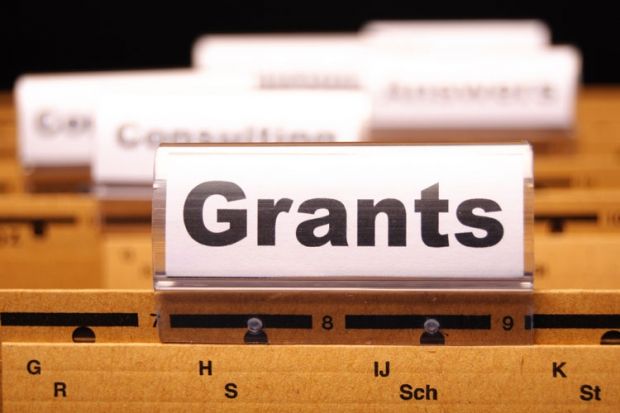Biotechnology and Biological Sciences Research Council
Research Grants
- Award winner: Kenneth Sawin
- Institution: University of Edinburgh
- Value: £657,292
Dynamics and interaction of cell-polarity landmark proteins and the Cdc42 GTPase module: a systems approach
- Award winner: Gancho Slavov
- Institution: Aberystwyth University
- Value: £266,159
A population genomics approach to accelerating the domestication of the energy grass Miscanthus
- Award winner: João Passos
- Institution: Newcastle University
- Value: £303,563
Regulation of DNA damage signalling by autophagy in senescence
- Award winner: Alexandra Jones
- Institution: University of Warwick
- Value: £12,287
Control of seed and organ size by a ubiquitin-mediated signalling cascade
Leverhulme Trust
Early Career Fellowships
These offer salary costs for researchers at the beginning of their academic careers, providing them with the opportunity for advancement and enabling them to undertake significant pieces of original publishable research. The awards are worth up to 50 per cent of each fellow’s salary to a limit of £23,000.
- Award winner: Margit Dirscherl
- Institution: University of Bristol
Transitory monuments: the literary aesthetics of the railway station
- Award winner: Beci Dobbin
- Institution: University College London
Shallowism: Modernism and the idea of shallowness
- Award winner: Milena Kremakova
- Institution: University of Warwick
Early career trajectories of STEM graduates in the UK and Germany
- Award winner: Stefano Pagliara
- Institution: University of Cambridge
Understanding the mechanisms of active membrane transport: a synthetic approach for drug design
Research Project Grants
Sciences
- Award winner: Virpi Lummaa
- Institution: University of Sheffield
- Value: £290,467
Causes and consequences of parasite infection in Myanmar timber elephants
Action Medical Research
Research Project Grants
- Award winner: Alex Heazell
- Institution: University of Manchester
- Value: £191,080
Stillbirth: investigating maternal behaviours
In detail

Award winner: Aneta Stefanovska
Institution: Lancaster University
Value: £79,117
Autism spectrum conditions: improving diagnosis in young children
Evidence suggests that one in 100 children in the UK has an autism spectrum condition, or ASC. Diagnosis can take a long time and often follows a period of uncertainty when it is unclear whether the children being evaluated are on the spectrum. This project aims to develop a new way to diagnose ASCs in young children by assessing their brainwaves. About 40 children between 3 and 4 years old are taking part in this initial study, of whom half have recently been diagnosed with ASCs. The children’s brainwaves are being recorded over 20-30 minutes using electroencephalography. It is hoped that the study will pioneer earlier, quicker and more reliable diagnosis of ASCs, which may reduce the stress on families, cut medical costs and allow children to get the support they need sooner.
Register to continue
Why register?
- Registration is free and only takes a moment
- Once registered, you can read 3 articles a month
- Sign up for our newsletter
Subscribe
Or subscribe for unlimited access to:
- Unlimited access to news, views, insights & reviews
- Digital editions
- Digital access to THE’s university and college rankings analysis
Already registered or a current subscriber? Login
